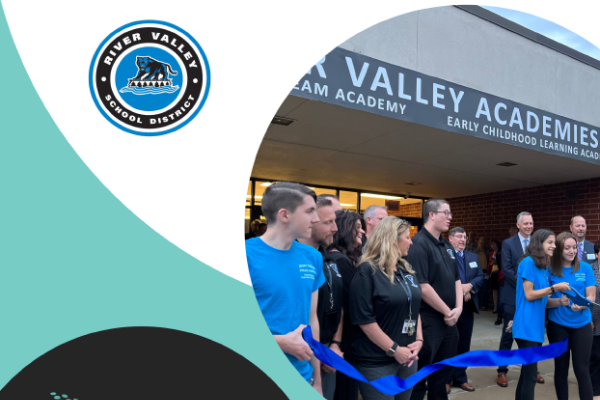My Itchy Case for Authentic Learning
March 01, 2019
My View
I will always remember the summer of 64. More importantly, my 7- and 10-year-old grandchildren formed even stronger summer of 64 memories. I am not referring to the summer of 1964, although I do remember not wearing shoes that entire summer and getting poison ivy.
The summer of 64 was last summer. Sixty-four was the final count of animals, fish and amphibians the grandkids tallied while visiting their grandparents in Michigan.
Creating this list was not their retired superintendent grandfather’s sneaky “prevent the summer learning slide” idea. The first amphibian on the list was a bullfrog seen and heard at the pond. When we returned from our hike, the kids looked up frogs and determined it was a green frog instead. The bullfrog made the list the next day along with a peeper verified with a video capturing the chin bubble action.
After the first hike, the kids took total control, including the daily wakeup call and all data collection. My role became chief safety officer and equipment manager. The fact I got poison ivy retrieving an old boat, which leaked, to row out on the pond did not score well on the assessment rubric.
Pursuing Balance
The post-hike discussions and data analysis also were self-initiated and self-directed. Some final conclusions were reached. A turtle observed sunning on a dock was identified initially as a painted turtle. Later, using phone magnification, the investigators agreed it was a common map turtle because of the sharp ridges observed on the shell.
Other inferences continued to be debated throughout the summer without reaching consensus. Was the paw print found in the sand a raccoon, a muskrat or some other small animal? Could they add this critter to the list without visual proof?
The summer of 64 experience strengthened and reinforced the critical role authentic learning and assessment plays in developing cutting-edge school systems. My premise is not to present an authentic versus contrived argument. I am suggesting that schools continue on a more aggressive and balanced path with a focus on creating systemic, authentic learning opportunities for all students aligned with authentic assessments.
Integrated Movement
Real-world school districts creating real-world learning experiences share several attributes, including budget priorities and community partnerships.
When President Kennedy announced his goal of sending a man to the moon, he included the need to increase and target resources. Authentic learning experiences require a similar approach. Field trips at all grade levels must be funded at levels that ensure equity and quality. Field trip participation should not be a positive or negative consequence in a classroom behavior plan.
Districts committed to authentic learning develop accessible outdoor learning labs through capital investment and partnerships. Visit a school with an on-site pond, garden, tortoise habitat or chicken coup and strike up a conversation with the students. Sit on the bus and eavesdrop with students returning from a weekend at an environmental learning camp. These become authentic arguments for authentic learning.
Those who lead the authentic learning movement also understand the need to integrate authentic assessment into the pedagogical package.
School districts’ best practices in authentic assessment include comprehensive student evaluation systems using projects and performance with aligned rubrics. These districts concentrate on developing internships, student-led conferences, digital badging and service learning experiences to mirror real-world demands.
Knowledge Building
Last fall, my weekly chat with the grandkids started with the summer list. They decided to add the dead blue gill floating by the dock. They had counted the large snapping turtle that they observed chomping the head and taking it for a meal. The key to their logic was although the fish was dead, it was observed. It was now officially the summer of 65.
The grandkids not only demonstrated strong retention, they continued building a deep knowledge base in Michigan fauna
and flora. Authentic learning, validated by authentic assessment. I finally found an upside to getting poison ivy.
About the Author
Nic Clement is the Ernest W. McFarland Citizen’s Chair in Education at Northern Arizona University in Tucson, Ariz.
Advertisement
Advertisement
Advertisement
Advertisement



